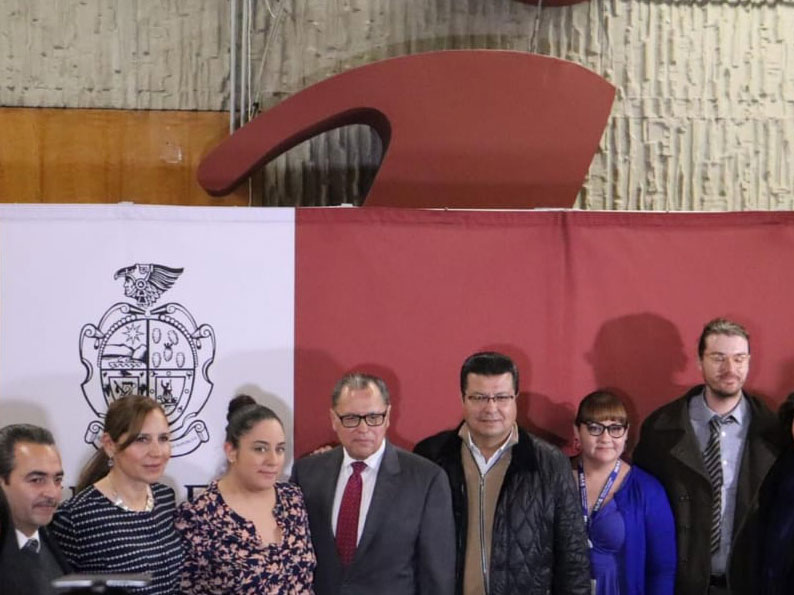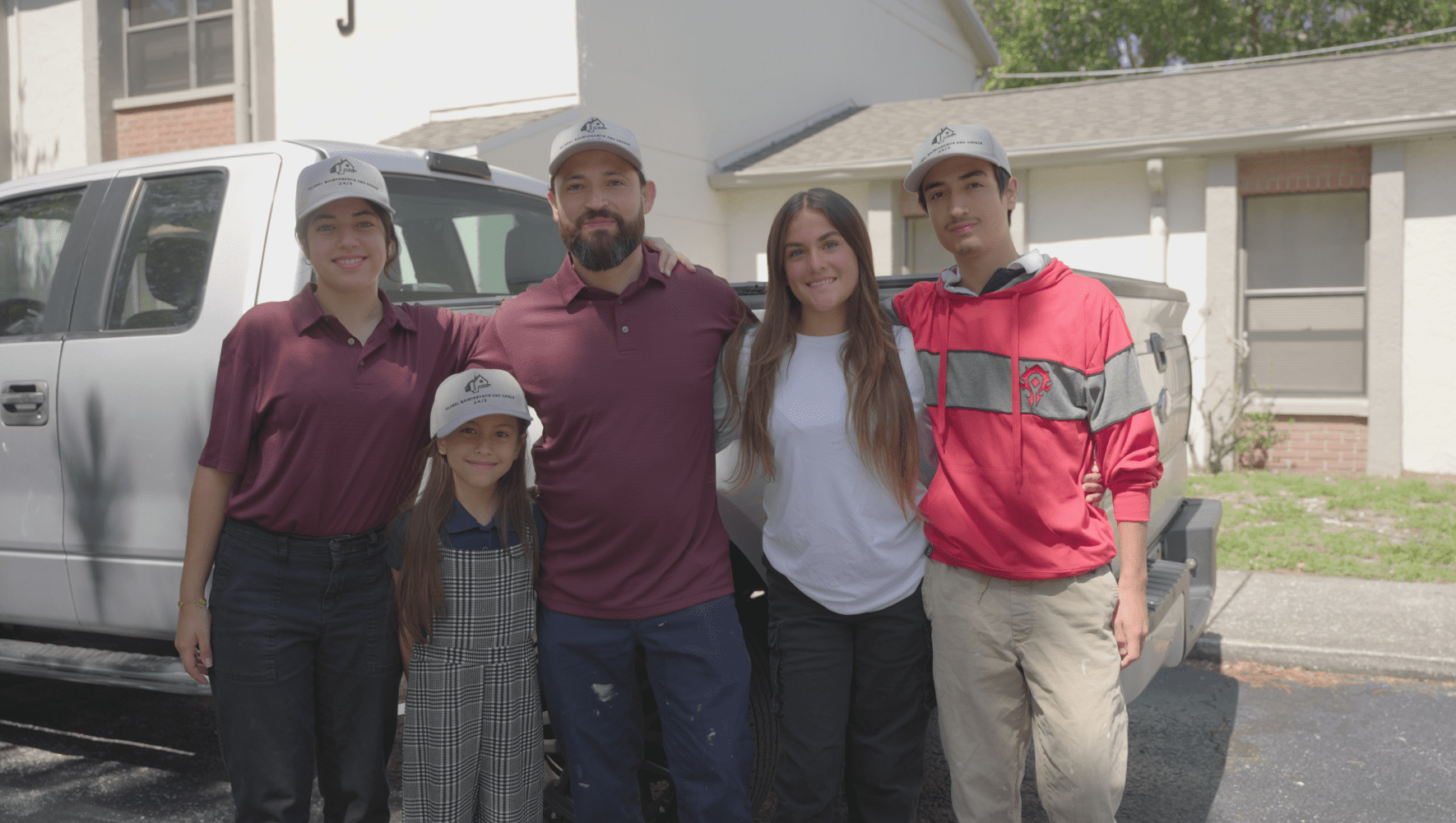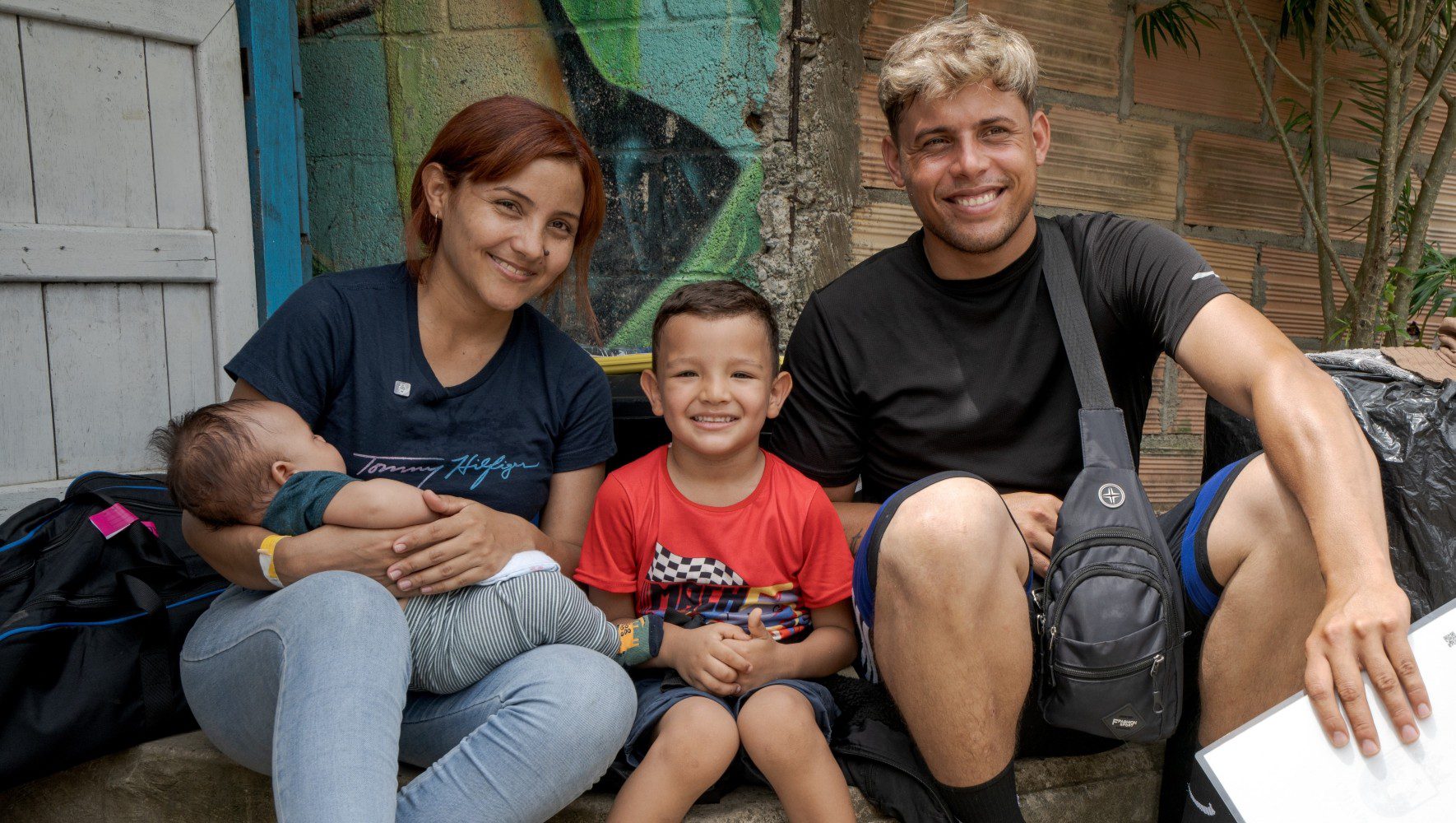Laptops and Lawyers Can Help Asylum Seekers in Mexico
By Sharon Samber, HIAS.org
Jan 16, 2020

HIAS Mexico Managing Attorney Rocio Melendez Dominguez (second from right) and HIAS Border Fellow Nico Palazzo (right) join with other partners at a press conference, January 14, 2020, in Ciudad Juarez where a pilot program to digitally link attorneys and asylum seekers was announced.
HIAS Mexico
Recent changes to U.S. immigration policy have forced asylum seekers at the U.S. southern border back to Mexico as they apply for asylum, and the ability to get legal representation has hit another setback.
So HIAS recently joined a pilot program to help asylum seekers find and work with U.S.-based lawyers via teleconferencing in Ciudad Juárez. An asylum seeker with legal representation is five times more likely to have a successful outcome of their asylum claim than someone without a lawyer’s help.
The “Puentes Libres,” (Bridges of Freedom) program will make it easier for pro bono attorneys to provide legal representation for asylum claims, and consult with clients via remote video conferencing as they follow the required steps required to make a claim.
“Through this program, HIAS and our partners hope to be able to schedule more consultations with asylum seekers in Ciudad Juarez and, when possible, connect them with pro bono attorneys,” said HIAS’ Director of Border & Asylum Network, Sue Kenney-Pfalzer. Attorneys in the program include the HIAS Border Fellows at Las Americas Immigrant Advocacy Center and Diocesan Migrant and Refugee Service.
Puentes Libres aims to overcome the challenges faced by thousands of asylum seekers forced to stay in Ciudad Juárez and other Mexican cities under the Migrant Protection Protocols (MPP, also referred to as “Return to Mexico”) imposed by the Trump administration last year.
The program is a partnership that brings together HIAS, El Paso State Senator José Rodríguez, Hispanic Federation, Las Americas Immigrant Advocacy Center, Diocesan Migrant & Refugee Services, the Municipal Government of Ciudad Juárez, and federal and local immigration agencies.
“In forcing asylum seekers back across the border, MPP put them in danger and have made it extremely difficult, if not impossible, for asylum seekers to find and talk to lawyers, file basic paperwork, and make court dates," Rodríguez said.
Hispanic Federation donated 50 laptop computers set up with the video technology needed for the project. The laptops will be at different centers, including at the HIAS office in Ciudad Juarez, and will make it possible for asylum seekers and attorneys to communicate remotely via secure internet connection.



